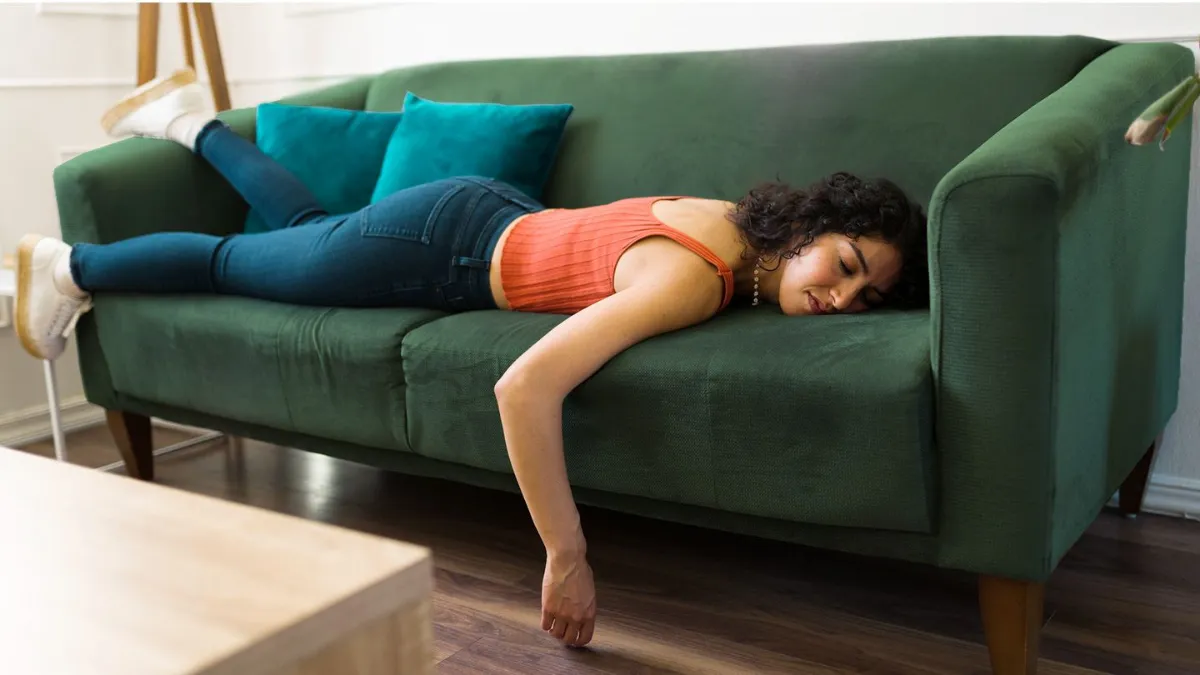If you don’t get enough good quality sleep, you might periodically nod off when you sit down.
But falling asleep every time you sit down could be a sign of a sleeping disorder that needs to be treated by a doctor.
What aspects of one’s lifestyle lead to dozing off when seated?
Certain aspects of your lifestyle may make you feel more exhausted during the day or make you nod off when you sit down.
For example, excessive alcohol consumption may cause someone to faint or nod off.
A sedentary lifestyle, taking drowsiness-inducing drugs, and getting little sleep at night can all contribute to daytime sleepiness and make it more likely that you will nod off when you sit down.
Does dozing off while seated indicate a sleep disorder?
Falling asleep frequently while you sit down could be a sign of hypersomnia, a sleeping disorder marked by excessive daytime drowsiness.
According to the UK’s National Health Service (NHS), several sleep, mental, and physical problems may be connected with hypersomnia, including:
narcolepsy obstructive sleep apnea
restless leg syndrome
depression
bipolar disorder chronic fatigue syndrome
Having a circadian rhythm disorder (CRD) may also lead toTrusted Source increased daytime fatigue, which could cause falling asleep when you sit down. CRDs are commonly triggered by changes that affect your daily pattern, such as traveling regularly or alternating between working day shifts and night shifts.
Is falling asleep while sitting a sleep attack?
Sleeping attacks are linked to narcolepsy, a chronic neurological condition that affects the nervous system. Symptoms of narcolepsy include excessive daytime fatigue, drowsiness, and a strong desire to sleep, which can occur suddenly in episodes lasting up to a few minutes. Some people experience sleeping attacks on a regular basis, while others may experience multiple attacks daily.
Information on hypersomnia
When someone feels extremely drowsy during the day, it’s known as hypersomnia. Sometimes the cause is unclear, however it could be neurological or other medical disorders like sleep apnea.
Hypersomnolence and excessive daytime sleepiness are other terms for hypersomnia.
Due to their excessive drowsiness, people with hypersomnia struggle to function during the day, which might impair their energy and focus.
Learn about the symptoms, causes, and forms of hypersomnia here, along with how to obtain treatment.
Who is susceptible to hypersomnia?
Hypersomnia is more common in those with conditions that cause them to feel sleepy during the day.
Among these conditions are Trusted Source:
Sleep apnea and renal disorders
conditions of the heart
circumstances of the nervous system
depression
decreased thyroid activity
epilepsy and encephalitis
Regular drinkers and smokers are also susceptible to hypersomnia. The adverse effects of drowsy-causing medications often resemble those of hypersomnia.
Although it can occur at any moment, hypersomnia usually first manifests between the mid-teens and early twenties. Periodically, the severity of the symptoms may increase. They could get worse for women right before their periods.
According to the Hypersomnia Foundation, 10–15% of persons experience symptoms that go away for no apparent reason.
What is the long-term outlook for people with hypersomnia?
With the correct medicine and lifestyle adjustments, some persons with hypersomnia can experience a reduction in their symptoms, but others may never fully recover.
Although it is not a life-threatening illness, it can affect a person’s quality of life and make it challenging to work, learn, and perform other daily tasks.
Because it can alter how some medications, such as anesthesia, work, people with hypersomnia should inform their doctor if they are receiving treatment for another illness.
Types of hypersomnia and their causes
Idiopathic, primary, or secondary hypersomnia are all possible.
People who experience excessive sleepiness for no apparent reason are said to have idiopathic hypersomnia.
When hypersomnia is the primary ailment, it is referred to as primary hypersomnia. It could be a sign of narcolepsy or have neurological origins (Trusted Source).
According to one idea, certain people’s cerebrospinal fluid produces an excessive amount of a particular tiny molecule. This functions similarly to an anesthetic or sleeping drug. But additional study is required.
Another medical issue that causes secondary hypersomnia includes:
depression, multiple sclerosis (MS), drug or alcohol abuse, a tumor, nerve damage from a head injury, central nervous system damage, medication use, sleep apnea, and other diseases that impair your ability to fall asleep at night, resulting in fatigue during the day.

